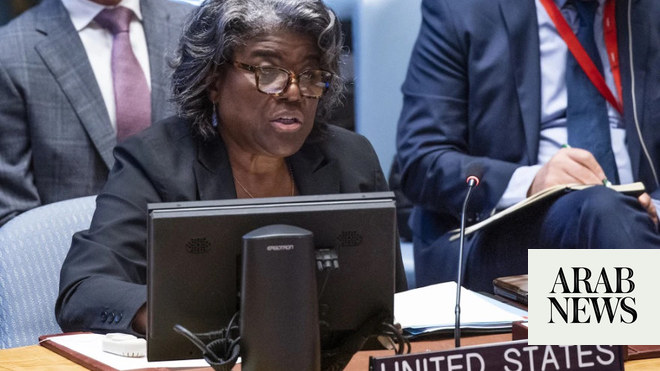
It seems that the Biden administration is upping the pressure on the government of Bashar Assad in Syria to reveal all aspects of its chemical weapons program. This diplomatic pressure coincides with an effort by the UN to compel the political regime in Syria to release all the information it still keeps secret regarding any stockpiles of chemical weapons.
According to the Al-Monitor newspaper, the highest-ranking UN official tasked with finding Syria’s chemical weapons, Izumi Nakamitsu, has told Damascus that it has to offer more transparency. She reportedly said that the Assad government had submitted 17 amendments and several supplementary documents to its original weapons declaration, but has left 20 out of 24 requests for disclosure unresolved since a 2013 agreement to rid the country of chemical weapons.
However, there have been important developments in the situation with Syria that have led to a serious review of the real interests of the Biden administration regarding the Assad government. Among them is the fact that the US has significantly reduced its support for the opposition in Syria. In fact, the Biden administration is under pressure to normalize relations with the Assad regime, but such a major diplomatic step has not happened officially.
Another strategic consideration is that the Biden administration will not take any military action against Syria, even if it uses chemical weapons. In this regard, Biden will be reversing the policy that President Donald Trump instituted in 2017 and 2018, when he approved air raids against military targets inside Syria in retaliation for its use of chemical weapons. The Biden administration will instead defer to the UN’s authority as it attempts to locate any evidence that points to Syria having chemical weapons depots.
Biden has increasingly modest goals in Syria. When President Barack Obama declined to use any military options against the regime in August 2013 after the Ghouta attack, the US media labeled his withholding of the utilization of military power an annunciation of an American strategic creed to be designated as the Obama doctrine. But Biden does not wish to elevate his administration’s policy on Syria to anything close to the stature of a strategic dogma.
Ironically, the greatest advantages the UN and US can gain in terms of having adequate information about Syria’s chemical weapons program is by cooperating with Russia. But this will be difficult because tensions between Moscow and the West are rising over Ukraine.
For sure, there will be more serious disputes between Syria and the UN over the scheduling of visits by officials from the international organization to inspect suspected chemical weapons facilities. No doubt the Biden administration will endorse the UN’s demands wholeheartedly. But the US must put such demands against the backdrop of the need to safeguard any peacekeeping operations in Syria. How can an international force of soldiers be safe while the likelihood of the use of chemical weapons is high?
Another thorny issue is the tendency by many US politicians, especially Republicans, to associate Iran with Syria’s chemical weapons program. Biden has the task of disclosing all the information about any Iranian involvement in Syria’s strategy. Tehran will likely deny having any relationship with Syria’s chemical weapons.
Neither the UN nor the US will ask any other institution to discover all the data on Syria’s chemical weapons. Hence, they have a long-term commitment and a responsibility to finish the job. They have to be fully cognizant of the fact that their investigation is unlikely to be successful in the short term. They won’t simply discover a huge cache of chemical weapons, but rather will put the picture together piece by piece. Therefore, the Biden administration will likely have to exercise strategic patience until it obtains all the information it needs about what Syria has in terms of chemical weapons.
UN, US won’t simply discover a huge cache of chemical weapons, but rather will put the picture together piece by piece.
Maria Maalouf
There could be people volunteering to testify and help determine the locations of Syria’s chemical weapons. This could provide the UN and US with the institutional memory to check against any other revelations. It is obvious that the search for Syria’s chemical weapons will not enter diplomatic limbo. It will instead gather political and international momentum since it is tied to the push to end the civil war in that country.
Syria having chemical weapons would mean a state of perpetual strain between itself and the international community. But you never know, Assad may do what Libya’s Muammar Qaddafi did and reveal all the information about his weapons of mass destruction programs. In that case, the Biden administration would have to strike a balance between a positive decision on such a move by Syria and adopting a strategy of how to hold the US up as a deterrent force to thwart any effort by any entity to procure chemical weapons.
Maria Maalouf is a Lebanese journalist, broadcaster, publisher, and writer. Twitter: @bilarakib
Disclaimer: Views expressed by writers in this section are their own and do not necessarily reflect Arab News" point-of-view










